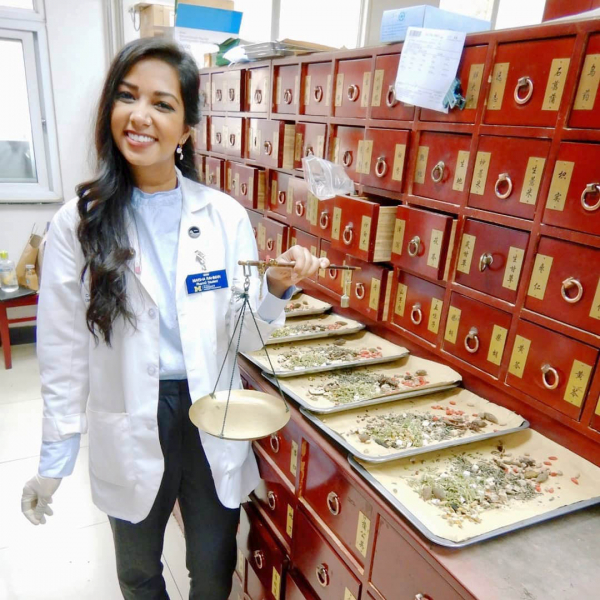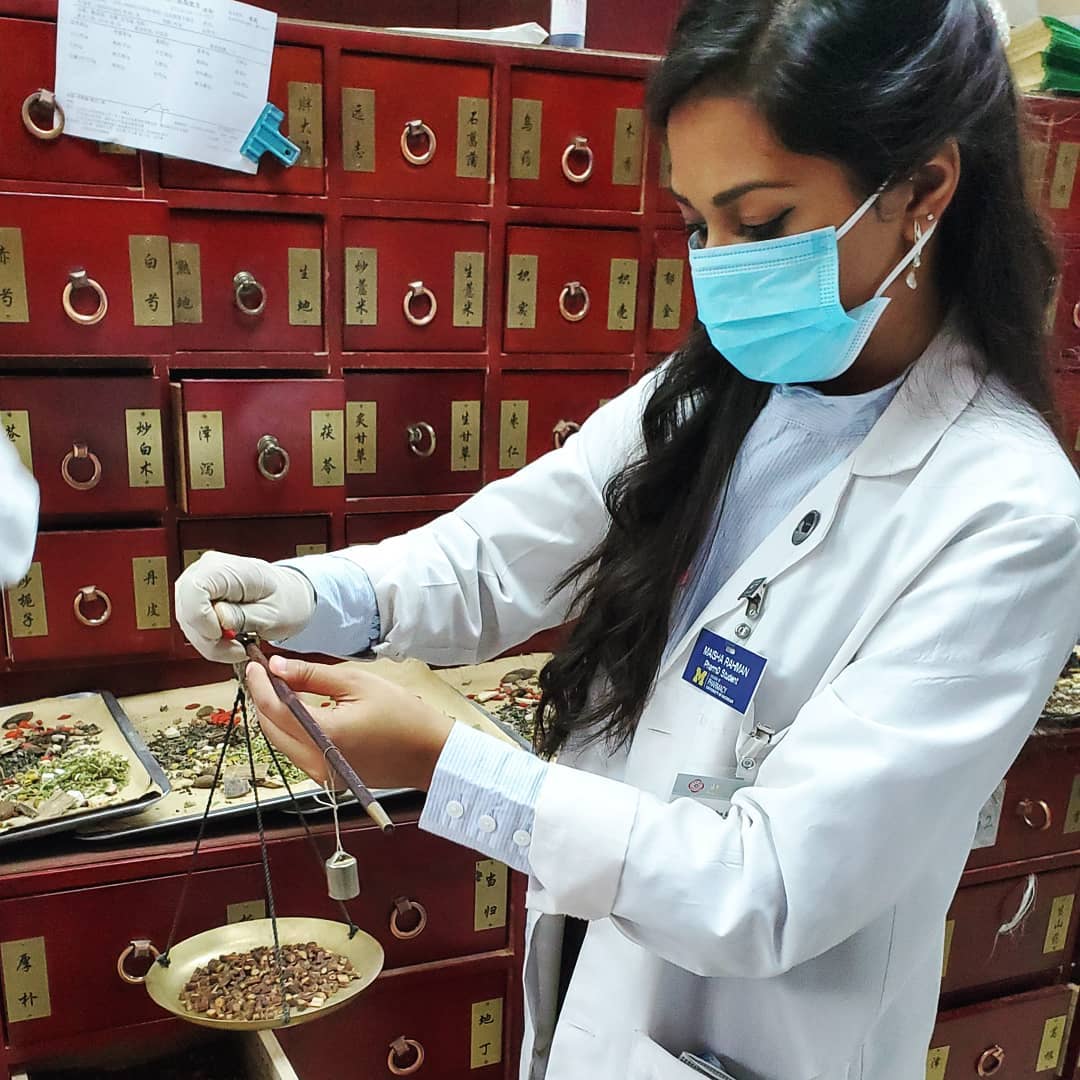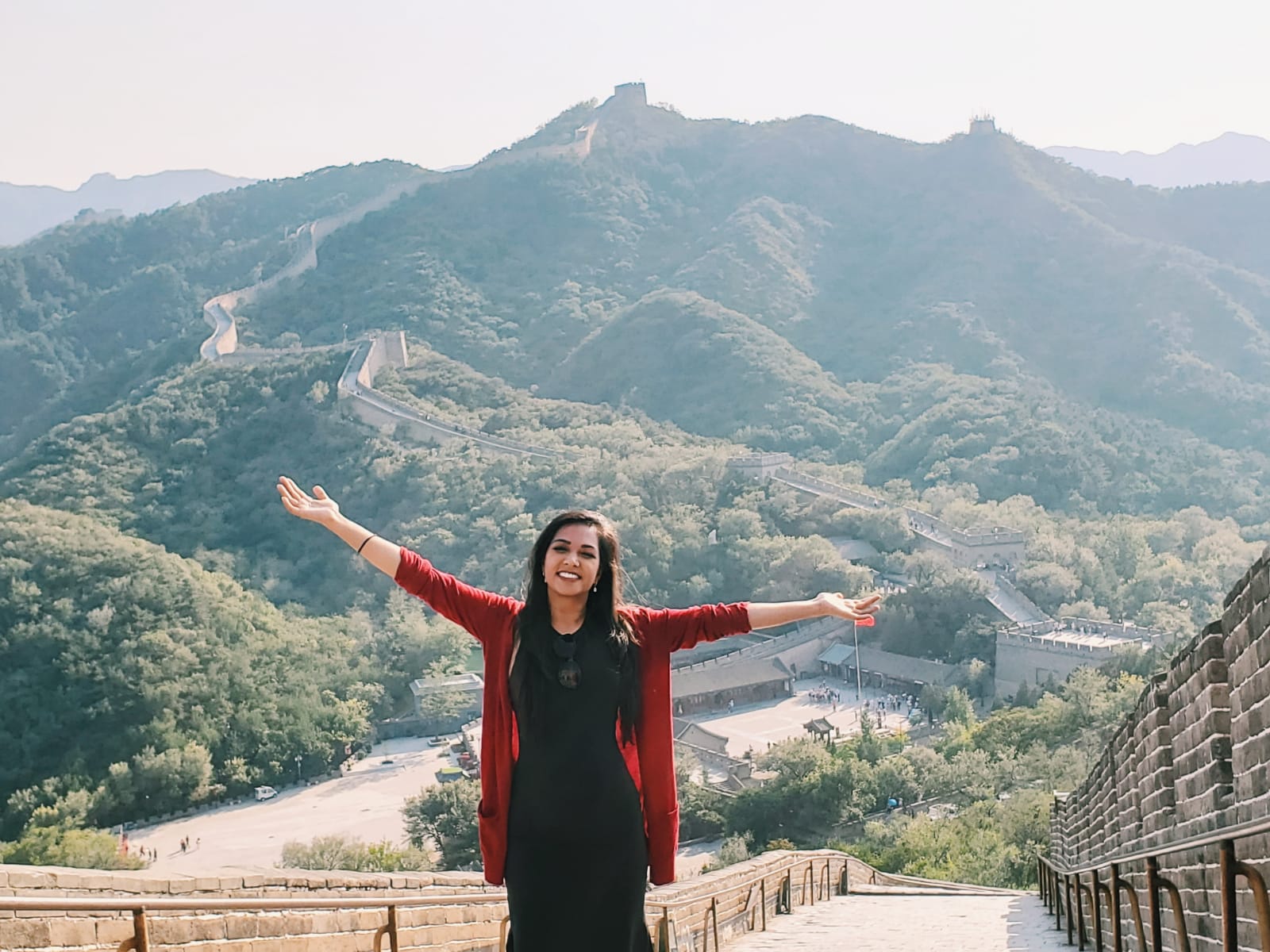Student Spotlight: Maisha Rahman

We’re very excited about our new Student Spotlight series, which will highlight the unique experiences of our U-Mich pharmacy students! Maisha Rahman is a fourth-year PharmD student at the University of Michigan, set to graduate in 2020, and the subject of our first Spotlight. After completing her program, she plans to pursue a Medical Affairs Managed Care Liaison Fellowship with Genentech in South San Francisco, California. Most recently, Maisha landed an international rotation at the Peking University Third Hospital in Beijing, China during the fall of 2019 and shared her experiences with us.
Q: So Maisha, what was the main area of focus for your rotation?
A: There were two main areas of focus. First, was Traditional Chinese Medicine which lasted two weeks. Then, there was an area of our choice. I chose obstetrics and had the chance to study reproductive medicine and rotate through Peking University Third Hospital’s renowned obstetrics department.
Q: How do you feel the field of pharmacy is different or similar in China?
A: China has mastered the blend between Eastern and Western medicine, and with strong provider trust, they are able to utilize the benefits in both in therapies for patients. Prescribers write scripts for both western medicines as well as Traditional Chinese Medicine therapies. Some aspects of pharmacy are similar, some are different. The hospital we were working with is one of the largest in the country, and the pharmacy department had its own large building. The hospital included an “outpatient pharmacy” – essentially a discharge pharmacy. Patients would take a number, sit down, and be called up to a window when their medication was ready. The pharmacy utilized a number of conveyer belts that brought the medications up to the pharmacists at the window for check-out. In an office outside of the outpatient pharmacy, a pharmacist was assigned to answer any patient questions and offer counseling about medications at discharge. There was also a large poster of the most commonly used medications with a small QR code next to each medication. If patients were in a rush, they could scan the QR code and pull up a patient-friendly leaflet onto their phones.
Q: Did you have a chance to interact with patients during your rotation? If so, what was the biggest impact that the experience had on you?
A: Yes, we interacted with patients every step of the way and even had the chance to try our hand at some TCM practices such as acupuncture on willing patients. In acupuncture, talking to patients who told us about how they tried many types of therapies for their conditions was especially impactful. There was one older man who had facial paralysis that had tried several medications and therapies to no avail and had lost hope for his condition until he tried facial acupuncture. His excitement as he described his improvement reminded me how important it is as a healthcare provider to understand all the different treatment options for a patient. In the other part of my rotation, I spent some time under physicians in reproductive medicine. Here, I saw a number of women who thought they may never be able to be a mother until trying in vitro fertilization. It’s a trying process for women that often requires multiple attempts, and some women never find success at all with it. I saw happy success stories here, but also saw the other side as physician’s had to deliver tough news to women that they may never be able to have children. This experience taught me a number of lessons – the value of hope, the importance of understanding and safely providing life-changing therapies, and being steadfast and empathetic as a provider to support our patients through their many unique trials in life.
Q: What would you say was the most challenging part of your rotation?
A: Definitely the language barrier.
Q: Would you recommend this experience to future students? Why?
A: Yes!!! International rotations give you an opportunity to really broaden your understanding as a healthcare provider by seeing how care is provided in places completely different from our home in the US. It gives us an opportunity to learn from another model, as well as understand disparities that are challenges globally. As a healthcare provider, I believe it’s always beneficial to grow your knowledge of different ways things may be done around the world and to grow an awareness of therapy options for your own patients. Plus, outside of rotation time, you have plenty of time to experience and travel through an amazing and truly historically rich country. It might seem intimidating, but this is truly the opportunity of a lifetime and you’ll never have the chance to do something like this again! Definitely go and I promise you will grow from it.
Q: What advice would you give to future P4’s who are hoping to embark on an international rotation?
A: I’m personally participating in two international rotations – the one in China and I have an upcoming one next month in Kenya. The biggest piece of advice I can offer is to be open minded. Any experience is good experience and an opportunity to grow. International rotations will challenge you – both professionally and personally.
Do your research! Talk to people who have visited the country, talk to international students for advice on navigating the personal and professional aspects of seeking education abroad somewhere, and reach out to hosts/preceptors in the country you’re visiting with your questions. There are tons of resources online as well, including travel blogs that can help prepare you for what to expect.
It can feel alienating to be in a completely unfamiliar setting, but it’s so empowering to be able to navigate through this. I feel significantly more confident in myself knowing I can get out of my comfort zone and handle whatever obstacles may come my way, all while building relationships in amazing new places. You’ll be rewarded with experiences so beautiful and unique, and reminded that despite the differences people have across the world, human connection is still a common thread you can find anywhere.
Responses have been edited for length and clarity.





